<< Previous | Displaying results 181-190 of 6768 for "" | Next >>
Regina was born in Radom, a city that had 120,000 inhabitants. Her father worked as a leather cutter for a large shoe manufacturer and her mother took care of their six children. The Gutmans were very religious and Regina attended Hebrew school in the afternoons. Radom had a vibrant Jewish community of some 30,000 people, several Yiddish daily newspapers, and beautiful synagogues. 1933–39: On September 1, 1939, the German army invaded Poland, and seven days later, Radom was occupied. Soon afterward, the…
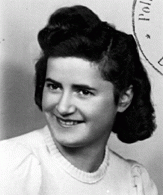
Sam was the eldest of five children born to Jewish parents in Kozienice, a town in east central Poland. His father owned a shoe factory and his mother cared for the children and the home. Kozienice had a thriving Jewish community that made up about half of the town's population. 1933–39: On September 1, 1939, German troops invaded Poland. That morning the Spiegels heard an air raid siren blaring and quickly left their house. Fifteen minutes later a bomb struck the building. Sam was just 17 years old.…
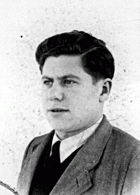
Elzbieta grew up in Iwonicz, a resort town in southwestern Poland noted for its mineral water. Her father, Edmund, was a respected physician and Helena, her mother, had studied pharmacology. At home, they spoke Polish and were among the few Jewish families who lived in Iwonicz. 1933–39: When German troops invaded Poland on September 1, 1939, Elzbieta's father was drafted into the Polish army. Seventeen days later, the Soviet army drove in from the east and Edmund was captured. He was transported to a…
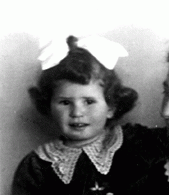
Susan grew up in Vacha, a small Thuringian town where her family had lived for more than 400 years. Her father, Herman, owned a general store and her mother, Bertha, took care of the home and children. Susan had a younger sister Brunhilde. The Strausses were one of about 25–30 Jewish families living in Vacha. 1933–39: Soon after the Nazis took power, many of Susan's friends stopped playing with her. In 1938 she was forced to leave the public school. That November, the Nazis unleashed a wave of pogroms…
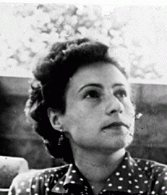
The Hilsenraths lived in Bad Kreuznach, a city in western Germany with a Jewish community that dated back to the 13th century. Susi was the eldest of three children. Her father owned a thriving linen store, and her mother took care of Susi and her two brothers. 1933–39: After the Nazis came to power, the Hilsenraths, like other Jewish families, began to feel the effects of increased antisemitism. Susi was forced to leave the public school, along with the other Jewish children. Even walking on the…
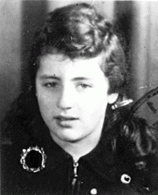
Gerd was the eldest of four children. His father, Josef, had left Ukraine in 1913 and opened a bicycle sales and repair shop in Bremen. His mother, Selma, was descended from a distinguished Jewish family and had been a kindergarten teacher and a bookkeeper for a large firm. As a child, Gerd experienced the hardships of the Depression and witnessed the violent street fights between the Nazis and their political opponents, the Communists and Socialists. 1933–39: When the Nazis came to power in 1933, Gerd…
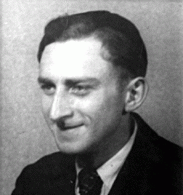
Martin was one of nine children born to orthodox Jewish parents in Veľká Poľana, a rural village in the Carpathian Mountains. His father owned a farm and a meat business, and his mother attended to the children and the home. Everyone in the family helped take care of the horses and cows. 1933–39: Martin attended the village's Czechoslovak schools, which were quite progressive. Like many of the other children, he looked forward to leaving the provincial life in Veľká Poľana. In 1938–1939, his…
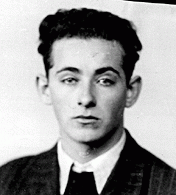
Lisa was born to a Jewish family who lived in a town about three miles from the German border. Her family had lived there for generations. Lisa's father exported geese to Germany, and her mother owned a fabric store. The family lived with Lisa's grandmother in a large, single-level, gray stucco house. Lisa attended a small Hebrew school in Raczki. 1933-39: In 1937 Lisa transferred to a public school. One day, in fifth grade during recess, some boys grabbed her long blonde hair. Others joined in and pinned…
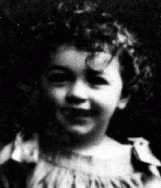
Barbara was the older of two daughters born to Jewish parents in Germany's capital, Berlin. Barbara's father was a successful lawyer. As soon as Barbara was old enough to walk, he would take her around Berlin to see the sights and tour the city's art museums. Barbara liked to go horseback riding and dreamed of becoming a dancer. 1933-39: After the Nazis came to power in January 1933, it was illegal for Barbara's father to have non-Jewish clients. His law practice quickly folded. Later that year when…
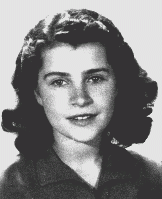
The Martons were one of 35 Jewish families in the small northern Transylvanian town of Beliu. Barbara's father owned a grocery, and her mother helped out in the store. The Martons lived in a comfortable home with a flower garden, and enjoyed friendly relations with the townspeople. As a child, Barbara learned Hebrew on Sunday mornings at the home of Beliu's rabbi. 1933-39: Barbara's father's business began to fall off when another grocery opened nearby in Beliu. By 1937 business was so bad that they sold…
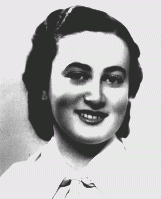
We would like to thank Crown Family Philanthropies, Abe and Ida Cooper Foundation, the Claims Conference, EVZ, and BMF for supporting the ongoing work to create content and resources for the Holocaust Encyclopedia. View the list of donor acknowledgement.